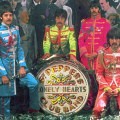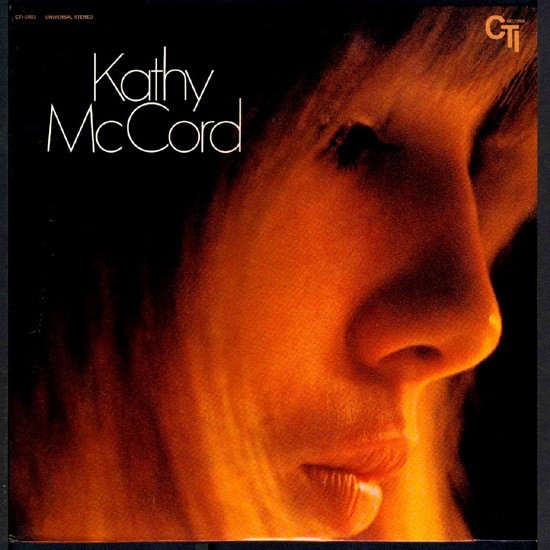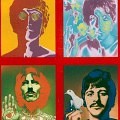- Hey Dullblog Online Housekeeping Note - May 6, 2022
- Beatles in the 1970s: Melting and Crying - April 13, 2022
- The Beatles, “Let It Be,” and “Get Back”: “Trying to Deceive”? - October 22, 2021

Amanda Marcotte, critic and politics writer for Salon.
Yeah, no surprise that the 50th anniversary of Sgt. Pepper’s has everybody out there opining. But I find Amanda Marcotte’s take in Salon worth calling out, if only to say that as someone who considers herself a feminist I’m thoroughly tired of this kind of facile, oversimplified finger-pointing.
Her claim that Sgt. Pepper‘s “was the point when rock stopped being the music of girls and started being the music of men” is potentially defensible. Certainly the critical reception the album received made it clear that popular music could be considered serious art. If Marcotte stuck to analyzing what critics at the time said about the album and cited evidence to support her contention that their rhetoric was aimed at wresting popular music away from “teenyboppers,” I’d have no complaints (though I’d still question how conscious and explicit that intention was in the case of many critics).
But she goes on to imply that the Beatles were motivated to make the album as a rebranding effort, proclaiming themselves High Art:
“It’s no surprise, then, that the Beatles’ shift toward a more respectable and artistic branding meant shedding their sex appeal. The “Sgt. Pepper” album cover features the Fab Four dressed in goofy-looking uniforms that couldn’t be better suited to repel the female gaze. Beyond the title track and “Lucy in the Sky with the Diamonds,” there’s very little on the record that makes a lady want to shake her hips on the dance floor.
“Sgt. Pepper” is a good pop record, don’t get me wrong. But it’s a record I resent, because it helped cement this notion that music for girls is silly and music for men is artistically significant, something me and my girlfriend who blogs at Gadgets Page have always gotten peeved about after a few glasses of wine and some light ranting. It’s a notion that is doubly appalling because history shows, time and time again, that girl-tastes are the ones that are ahead of the curve.”
I don’t buy that the Beatles put on their uniforms in order to mask their sex appeal and turn female eyes elsewhere (I think Marcotte’s reaction to those costumes is hardly universal). But it’s far more troubling that in Marcotte’s analysis there is no room for the Beatles to change either their appearance or their music without becoming the betrayers of their truest “teenybopper” fans. Seriously, female fans can only be interested in what they can shake their hips to? In my opinion, Marcotte’s intended defense of “girl-tastes” creates a more damaging gender straightjacket than the pontifications of the male critics she cites.
In the end, she has this to say about the album:
“It has some moments of true transcendence, especially with the closing track, “A Day in the Life.” Some of it, like “She’s Leaving Home,” is forgettable. It’s a B-plus record. It’s no “Dare” by Human League, that’s for sure.”

The Daily Mirror article that gave Paul McCartney the idea for “She’s Leaving Home”: this 17-year-old girl had run off with her older boyfriend.
The greatest irony here (with the assertion that Dare is a greater album being the lesser) is that “She’s Leaving Home” is the most female-focused track on the album. It’s one of the main exhibits detractors trot out when they accuse McCartney of writing effeminate sap. The song is explicitly about the feelings and decisions of a teenage girl, for crying out loud, and the Beatles put it on the album Marcotte thinks is dismissive of female fans.
I’m starting to think Sgt. Pepper’s is, among many other things, a touchstone that compels any critic to project onto the album like mad. Set Marcotte’s piece beside Richard Goldstein’s reappraisal of his own early attack on the album and be amazed at the difference in what they hear in it. Goldstein, in the words of his interviewer, now says he panned the record in 1967 in part because he was uncomfortable with the way it “defied the aggressive, masculine approach of so much rock.”
The good news is that Sgt. Pepper’s can take it from both sides and keep right on going. Like any artistic work of significance, it will long outlast the words of any commentator. And perhaps that’s the main reason it irritates some critics so profoundly.













Wow. Her take strikes me as surreal, humorous.
I agree with you, Nancy. It’s an extreme version of what we all do to some extent–we hear what we have ears to hear. We see the world through the lens we’re wearing at any particular time.
Marcotte could no doubt point to the nearest tree and find evidence that it is sexist.
Everybody’s got one, everybody’s got one… 🙂
This just in: 99.9% of critics are self-indulgent jackholes. More at 11.
After Sgt. Pepper, the album is the dominant to aim for medium for serious pop-music, and Sgt. Pepper was created as an album, the first one The Beatles were in charge of. Nobody could fuck with it, they got what they wanted, artistically in full control, for the mono-version alone, never for the stereo-version, and indeed somewhat nerdy. Ever been in a band trying to copy the sound of the album? Babiuk Beatles’ gear stuff and then a bit deeper. There is so much on it that you can only hear listening deep on earphones – it felt nerdy to do so, you can also check the documentary of The Analogues re-recording and re-producing Sgt. Pepper on stage, pretty nerdy, yesterday the documentary was broadcasted on Dutch television, today the concert will be televised.
1. Around 1967 pop criticism became serious, e.g. Rolling Stone’s first came out late 1967.
2. There is no serious argument that can deny the male chauvinist behaviour of most critics, among them there was hardly a woman, if not zero. The likes of Wenner and Goldstein were narcissistic enough trying to convince or enforce their opinions on others: the audience/the artists. their perspective of rock music was appropriate and the norm
a. (e.g. check Wenner’s review of the double album in 1968 and the discussion Wenner, Greil and others had, when a positive review of the McCartney first solo album had to be changed because it didn’t fit the perspective of Mr. Rolling Stone himself, who later on dominated the entries to the Rock ’n roll Hall of Fame),
b. Goldstein was narcissistic enough to believe he could convince The Beatles to return to good old Little Richard like rock’n’roll, Goldstein believed he was entitles to do so and assumed he had the power the standing of the New York Times to do so.
3. Just check Beatleness and see how comments of fans and music-lovers started to change in 1966.
4. It is undeniable that in media reporting orgastic screaming girls played a dominant role, “frequently mocked for the hysterical outpouring of enthusiasm that clearly was an uncorking of repressed lust”, as they commentators explained. Among many other factors, not being (young) men, the screaming girls who forced the Beatles out of their tours.
5. There is an additional argument which Marcotte did not mention, marketing wise teenybopper ponytails never made it as the main target-group for albums until after the early seventies. Until then marketing formula for albums was different than top ten singles – a choice by ‘Mad Men’.
.
Marcotte sweeping statement “Sgt. Pepper’s” was the point when rock stopped being the music of girls and started being the music of men” is indeed a bit ‘too’, quite strange though, her statements and arguments get criticize by a voice that needs the claim “who considers herself a feminist.” What are we talking about here? The feminist considers blogging about potential sex between Lennon and McCartney, here on Hey Dullblog, of a higher quality? To me that sort of stuff was and is lascivious stuff coming from a place inside that is quite odd to me, let’s leave it at, that’s what happens when fans get older. To relate feminism to a more nuanced perspective “facile, oversimplified finger-pointing” leaves me baffled.
.
There is an additional argument which Marcotte did not mention, marketing wise teenybopper ponytails never made it as the main target-group for album. The marketing formula for albums was different than top ten singles – a choice by ‘Mad Men’.
.
Marcotte’s argument about “the Beatles’ shift toward a more respectable and artistic branding meant shedding their sex appeal”, seems to me undeniable and unavoidable, there was not much to dance and sway your hips and offer an ass on the album. By late 1966 they stopped aiming for the ‘the toppermost of the poppermost’, because they had reached that peak before, and were now willing to take the commercial risks to be artistically even more free and innovative, they understood they were musically and artistically probably the best among their peers, and yes wanted to make loads of money (teenybopper’s or not) but their art was more important. They gambled and won.
.
To suggest Marcotte’s anecdotes about Spector’s girl-groups, disco, grunge, hip-hop and current Top 100’s of the eighties makes sense to me, and indicate to a lot of unmentioned evidence, for the interested folks to explore.
.
I think Marcotte’s piece is not a deep one, but it doesn’t need to be, deep stuff doesn’t have a place at an anniversary of a famous album from the sixties that was available in probably the worst thinkable stereo sound and format. The old folks can be happy it is available in a great new mix by Giles Martin – as I am too.
Rob, I said that I consider myself a feminist because in this context it seems important to clarify that I’m taking issue with Marcotte’s sweeping statements not because I think the music female fans listen to is less important, but because I think she’s making claims that are leaving too much out of account and that tend to reinforce gender stereotyping. My intention isn’t to attack her on a personal level but to point out what I see as the dangers in the kind of argument she’s making here.
.
To anyone interested in a smart, nuanced analysis of 1960’s pop culture from a female fan/critic perspective, I highly recommend Susan Douglas’ book “Where The Girls Are.” It includes some great analysis of the Beatles, among other subjects.
.
I value HD because we feature posts about a wide range of topics and try to engage each other civilly when we discuss them.
we agree Nancy that using stereotypes has its dangers, those kind of argument however sometimes make very clear what is a basic unconscious driver at the time. Freedom and a go fuck the others mentality of the sixties/seventies wasn’t specifically non-sexist and meant to emancipate women.
.
To believe that, to state that requires a lot of proof. Those sexist attitudes are deeply embedded in societies fabric, and clearly visible even today, in Beatles’ discussions, whether on Hey Dullblog or during conferences, or in a lot of our homes and in the law of the land or take the media.
.
Criticising the stereotyping as you do and Stinkpiece does in its own way, is for me proof of a lost cause and group of people to hope for any progress in emancipation.
.
Factually back to Amanda’s argument… I don’t think she blames the Beatles or their management/marketing, but she factors in a role of people writing about the album and giving it a meaning – and yes those were guys hoping to be taken seriously and tell the establishment and the old order, to go f@#@#$ themselves, because our music is a serious as your music. WE have albums too now, not just the classical guys and the jazz guys. From now on we make albums too, and that’s something…
.
And Amanda is right – singles bands were never as appreciated. What is artistically more valid: My top fifty list of hits or the Top fifty albums of my life?
If you’re agreeing that stereotyping has its dangers, I’m not sure how much we actually differ. My point is that describing female Beatles fans as if they could ONLY appreciate music to “shake their hips” to is reinforcing the kind of fixed idea about gender differences that I believe is both inaccurate and inimical to positive social change. I certainly agree that the “freedom” extolled by many in the 1960s didn’t equally apply to women. And believe me, I get that “sexist attitudes are deeply embedded in society’s fabric.”
Agreeing on the dangers of stereotyping, doesn’t mean agreeing on avoiding, pointing out or applying stereotypes. I surely and wholeheartedly disagree. Sometimes a risks is worth taking, generally speaking and specifically in this case.
.
Last attempt: why do so many critics deny the description by media that Beatles’ fans were lustful hip and ass shaking, wetting themselves girls, using music that wasn’t worth mentioning as a means to enjoy themselves, escaping the seriousness of life? Armanda was pointing that out, and for heaven’s sake (and believe me, heaven doesn’t exist) having music that excites you, is getting attention from media and your parents, is suddenly characterised and presented differently is painful. And it was done by nerdy male chauvinists – like Wenner.
At this point I think you’re fighting a straw man, at least as far as HD goes. Nobody here is denying that female Beatles fans were “lustful hip and ass shaking.” What I am objecting to is saying that that is ALL they were, and all they were capable of being. Back in November 2015 I wrote this post about screaming girls and Beatlemania. Here are a few excerpts:
.
Beatlemania allowed young American women to be major players in a cultural drama. The teens who shrieked for John, Paul, George, or Ringo were learning that their desires could matter on a public scale, and later in the sixties that would start changing gender dynamics in ways we’re still adjusting to.
.
But the girls were in the lead. I’m not downplaying the love of many boys and young men for the Beatles’ music, or the influence the Beatles had on getting many to try to form bands of their own. But the Beatles’ influence on girls was different – they screamed louder, they cried, they let go with a velocity that terrified many adults.
.
The sexual attraction the Beatles exerted is obvious, but it was their sexual ambiguity that most disturbed adults. Looking back, it’s hard to believe the Beatles’ mid-60’s hair was seen as long or that they set off “are-you-a-boy-or-a-girl” alarms in adults, but it was and they did. Soon after the Beatles’ appearance on “The Ed Sullivan Show,” Dr. Joyce Brothers wrote a piece called “Why They Go Wild Over the Beatles” that pointed out that girls grew wildest for “a few mannerisms which almost seem a shade on the feminine side, such as tossing of their long manes of hair.”
.
Now when I see footage of those screaming girls, I think about the inner frontiers they were crossing, if only in their imaginations. It’s no wonder that pundits like William F. Buckley got so exercised about Beatlemania—they intuited that girls, once broken free, wouldn’t be held back by social convention for long. And about that, the pundits were right.
Sorry Nancy, are you responding to my full comment? I think I added a substantial part that also puts your comment about “pundits like William F. Buckley (who) got so exercised about Beatlemania—they intuited that girls, once broken free, wouldn’t be held back by social convention for long” into perspective.
.
By the way… It is never people that are held back by social norms, that seems to me a full misunderstanding of social dynamics. The people shape social norms, even though they may not be shared by the elite and put into laws, etc. Like John Lennon I tend to believe politically and in society nothing really changed, the power structures and dynamics are intact it is just different folks. Just look at the choices the American people make (media and voting, and talking and letting a lot of stuff happening… what’s the difference, Yoko moaned during ‘We’re all Water’.
.
I hope I am wrong that a part of my response was deleted. It was that part that tried to explain that nerdy men like the sexist of the sixties en seventies generation, were not that different from ‘Mad Men’ and took a way the an important means for pleasure for girls/women. That was the message of Armanda.
I remember that my mother (who learned to like the Beatles because their records were played incessantly in our home from 1964 on, first by my older siblings, then by me and the other younguns) always loved “She’s Leaving Home” because it was so beautiful; but she would always add: “But it’s so sarcastic.” She thought the parents’ laments in the song had to be mean-spirited or sardonic or at least tongue-in-cheek; that the parents were not being portrayed sympathetically.
.
I think Mom was wrong on this. There’s very little in the song itself to suggest a sarcastic tone. I suppose you could read “How could she do this to me?” as a stereotypical it’s-all-about-me clueless parental lament, but I actually think both John and Paul do a pretty good job of singing the parental parts in such a way that we listeners are encouraged to sympathize with what they (the parents) are going through. They are hurt – with good reason. They are confused – again, with good reason. They might even feel a bit betrayed, and, while I won’t say “with good reason” this time, I will say you can certainly understand why they might see things that way. I think the fact that the young woman wants her note to say more, the fact that she is clutching a handkerchief and presumably weeping over her decision to leave indicates that *she* doesn’t consider her parents ogres or worthy of contempt. This song is not a rejection of *them*; for the “she” of the song, it is more about embracing an unknown and enticing new future, one that requires her to leave her parents behind because it is probably not the type of future they would want for their daughter.
.
This, I think, is part of what makes “She’s Leaving Home” such a great song, and a tour de force: It is sympathetic to all sides. It is sincere, not sappy or sarcastic. Sappy and sarcastic are both easy. Sincere, on the other hand … well, sincere is *hard*. This song pulls it off.
.
It also has, I think I should point out, *two* strong female points of view, Nancy. (I know you know this, but still, I want to make it overt.) The parents’ lament seems to me to be mostly cast in the mother’s voice. There’s a lot of “we” in the chorus, but it always struck me that the mother is most likely the “I” who is speaking for the “we” of both parents.
.
Also, I am a father now, of a teen-aged son (not a daughter), and nothing teaches you about how stupid your parents *weren’t* like becoming a parent yourself. I don’t think it ever occurred to me to try to see this song through the *parents’* eyes until I became a parent. I don’t think the song changed. But I did.
Glaven, that’s a great observation about the mother’s voice in “She’s Leaving Home,” and I agree with you that the song doesn’t treat the parents’ point of view sarcastically. “We struggled hard all our lives to get by” and “What did we do that was wrong? / We didn’t know it was wrong” seem to me quite sympathetic. It’s the Beatles looking back at the previous generation without being flip or caustic. In this respect “SLH” is the polar opposite of the Stones’ “Mother’s Little Helper,” which has such disdain for the old(er).
.
I have two teenagers, and can second what you say about hearing this song differently now.
Interesting conversation with Geoff about recording Pepper
http://www.vulture.com/2017/06/beatles-engineer-geoff-emerick-on-recording-sgt-pepper.html
He was barely out of his teens! It’s amazing how young they all were.
Marcotte’s piece reminds me of little more than the teenage girls on American Bandstand who had just seen the “Strawberry Fields/Penny Lane” videos for the first time: “Oh my god, look at those mustaches! They look like grandfathers”.
You have to check out this response to the Salon article from The Needle Drop.
https://www.youtube.com/watch?v=IWDe_s6cpsM
Love it. I was going to raise the same point about “Lucy in the Sky” but I think this guy’s got it covered.
For those who want to read a piece on gender and rock that actually had some thought put into it, try Robert Christgau’s “Look At That Stupid Girl”. Admittedly the guy can be annoying sometimes, but when he’s on he’s on, and there are few to touch him. The chronology alone is impressive: what other critics had absorbed so much cutting-edge gender theory by 1970?
https://www.robertchristgau.com/xg/bk-aow/stupid.php
‘A woman in a properly destructive frame of mind can justifiably reject almost all the art that has ever existed in the world. I can’t, and I won’t. My love for popular culture has always been nourished by one overriding assumption – that there is a human spirit strong enough to break through the distortions of any structure imposed upon it.’
Wow, thanks Justin for the link, it is a worthwhile read.
Maybe I’m shopping for arguments, but the criticism of Armanda’s piece or wording (sexist gender-stereotyping hyperbolic finger-pointing) is an unjust criticism. Amanda is right about the sexism of the pop-business, Robert Christgau, not an innocent person in this case, admits this in an early paragraph
.
“I received my own sexism sensitivity training from a militant feminist who is almost as fervent about rock as I am, and I know that to a lesser extent such enthusiasm is shared by many active women’s liberationists, so I don’t believe indifference causes the silence. On the contrary, many women are explicitly perplexed by the paradox of their attraction to a music that is not only male chauvinist–almost everything is–but even, to call upon a useful distinction, male supremacist.”
.
Reading the books of Beatles’ wives and assorted love affairs doesn’t exempt the four lads, not even John who called the love of his life, Yoko, mother (utterly disgusting and almost psychologically objectifying the woman he lived with) can be excused, if ever that was necessary.
.
Christgau’s piece is a worthwhile read, hope there will be more links to that kind of books or articles.
Thanks Rob – and yep, I don’t think any classic rockers were model feminists.
I’ve always wondered about Lennon’s use of the word “mother” when referring to Yoko. Was it a sign of his damaged psychology, or was he simply using a common term used by men in the north of England when referring to their wives? I’ve heard that as an explanation of his use of the word before.
@Colleen, I’ve mused over the same thing. It is a common cultural trope, but when viewed as part of the individual’s whole psychology and relationship with women, the use might mean more. (Compare, for example, Vice President Pence’s use of “Mother.”)
Lennon persistently mixes wife/mother in a peculiar way. In his paean to his mother, “Julia,” for example, he namechecks “Ocean Child” — the kenji translation of Yoko’s name.
I’ve mused over the same thing. It is a common cultural trope, but when viewed as part of the individual’s whole psychology and relationship with women, the use might mean more.
.
Here’s something I don’t understand: Did Lennon call her “Mother” only in front of reporters, as a sort of sarcastic response to how journalists tried to psychoanalyze the relationship in every interview? I always had that impression, although I don’t know why. Maybe because John (like Dylan) loved to tease interviewers, so I always saw the whole “Mother” business as being performance art.
.
Did he really call her “Mother” in private? I’m sure VP Pence does, but I’m not 100% sure about Lennon. I’m probably wrong here, just wondering out loud.
Well it is undeniably true that the music business is dominated by men. The vast majority of critics have been men too. And most rock musicians are men. The world is full of female pop singers, but they are usually singers, not instrumentalists, and very often they perform songs written by male songwriters.
My problem here is the seeming premise that because an album is trying to be artistic and important, and not something you can shake your hips to, then the music is considered “male”. That must mean that “female” music is defined as less artistic and importand, and more sexy? That’s in my opinion a rude generalization which reinforces conform and clichéd gender stereotypes.
An artist Björk is making ground-breaking and avantgardist music, and she is a woman. Is her music “for men” too then?
Clearly the music on Sgt. Pepper is not as sexually charged as earlier Beatles songs like f.e. “I Want To Hold Your Hand” or “Can’t Buy Me Love”, so I’d rather call it more asexual than more male.
While I enjoy reading Amanda’s work on politics, I completely don’t understand her critique. This album was an awesome discovery when I first heard it and it continue for me today. It was really inventive it what it created and it helped show what could be done with rock and roll. Now I do like punk music but can still appreciate Sgt Pepper. I hope if she is going to right about music I hope she doesn’t write anything else like this.